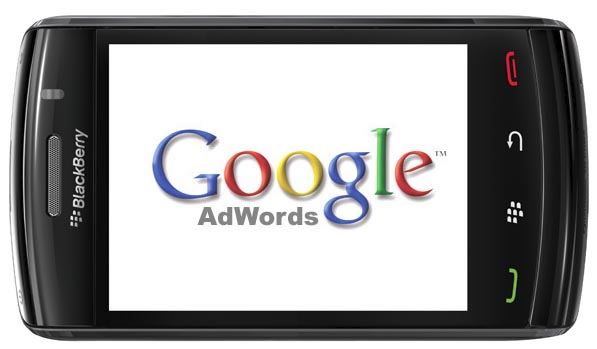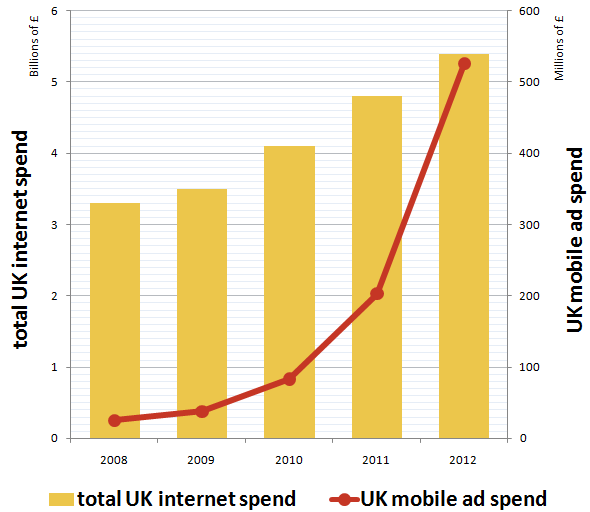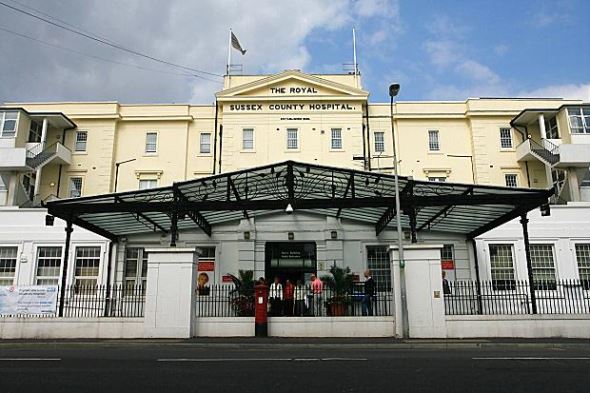
Latest figures from a study by the Internet Advertising Bureau (IAB) suggest that mobile internet advertising rocketed upwards in 2012. The study, conducted by PricewaterhouseCoopers, reported a total spend of over £500 million for mobile advertising in the UK last year. It’s thought that the massive increase in the popularity of smartphones and tablets and the affordability of budget Android options has contributed to this meteoric rise.
PricewaterhouseCoopers (PwC) is one of the “big four” accountancy firms and a massive professional services provider. They conducted the research into digital advertising spending to get a better idea of the potential of mobile advertising in Britain.
Nowadays over 60% of the popular owns a smartphone and tablet sales show no sign of letting up. Because of this, mobile advertising grew over 100% in 2012. Broken down, search advertising contributed almost 70% of this spend as it rose over 160% from an already-decent £138 million in 2011.
Another factor that is increasing the money involved in mobile is an increased use of apps. The staggering rises in mobile spending overall saw the country’s digital ad spend across all types of device hit £5 billion for the first time ever (with Google incredibly accounting for about 60% of this). Mobile advertising’s share of that massively increased to about 10% with a spend of £526 million over all.
Our graph below clearly shows how UK mobile ad spend is rising far quicker than general internet advertising:

In fact, the year on year trend is incredible. Just 5 years ago the total mobile ad spend was just £25 million and it’s now risen to over 20 times that amount as of last year. As a percentage, the rises are even more staggering.
For example, in 2008 mobile spend accounted for just 1% of the UK’s total. But 2011 that proportion had quadrupled to 4%. But the most impressive rise of all was last year when the increase went from 4% of the total up to a massive 10%. It remains to be seen whether this level of almost-exponential growth will continue.
In comparison, the total UK advertising spend on the internet has been growing but at a much calmer, more steady rate. The average growth is just under about 20% year-on-year. This clearly pales when juxtaposed with the mobile figure which have seen a rise of over 100% each year and that percentage increase is continually getting bigger.
Tim Elkington, director of research and strategy at the Internet Advertising Bureau, thinks that the buzz around mobile is more or less unstoppable. Especially with the introduction of 4G services that will be rolled out to more users in 2013, it’s hard to argue with him. And social media is only just really find its feet in its attempts to monetise successfully. As services like Facebook and Twitter mature, it’s hard to see any let up in mobile advertising spending. In fact, social media alone accounted for over £300 million of spending which is up 300% compared to 2009.
What do you make of this report? Are you surprised by these figures? Do you see the trend continuing into next year?









Recent Comments